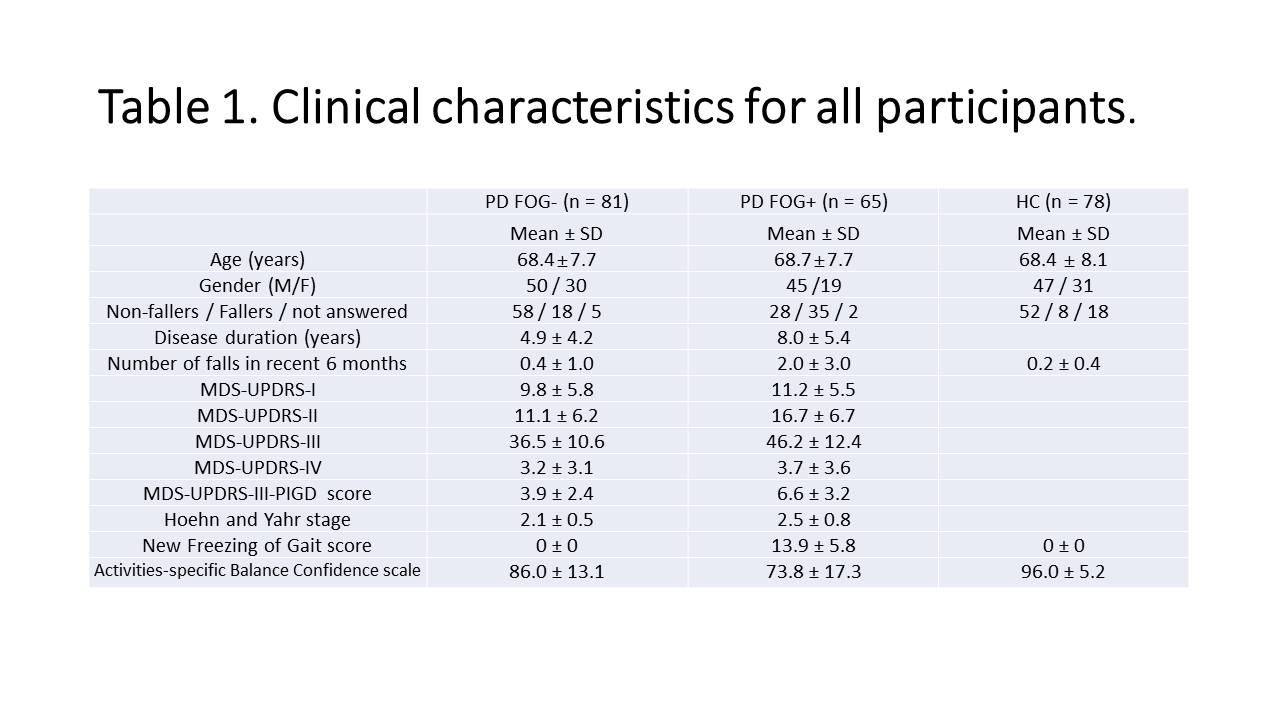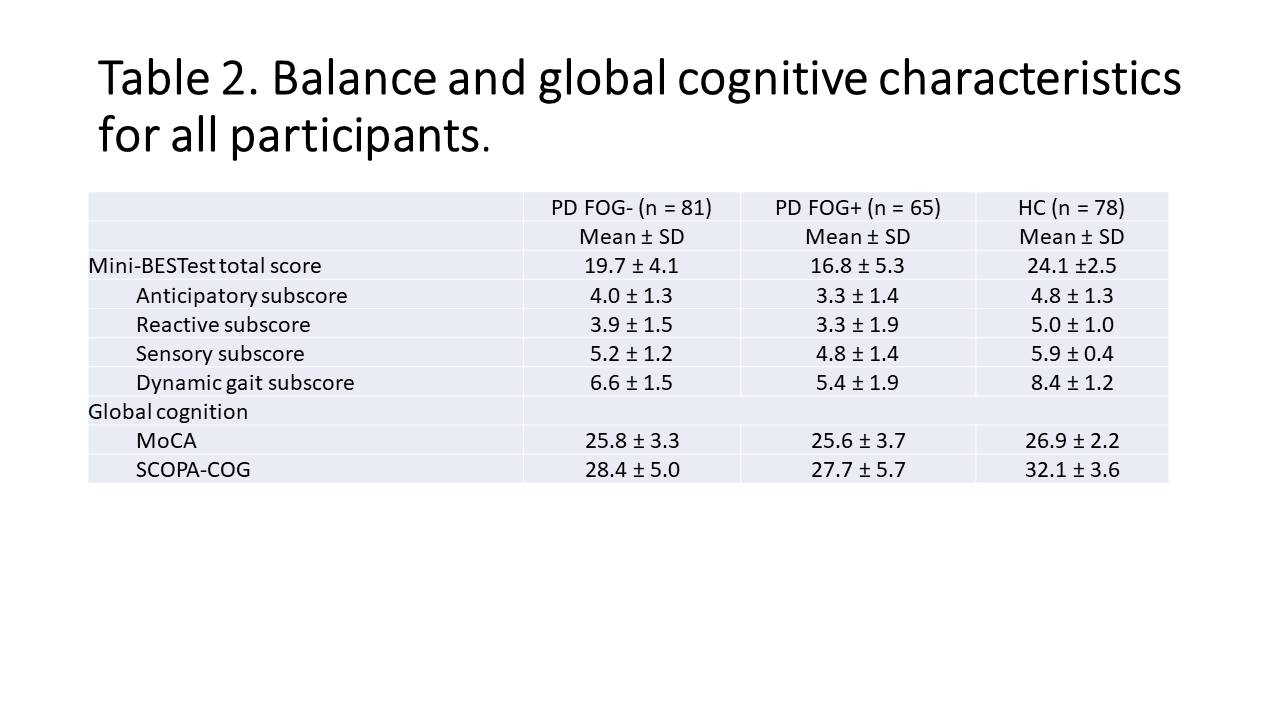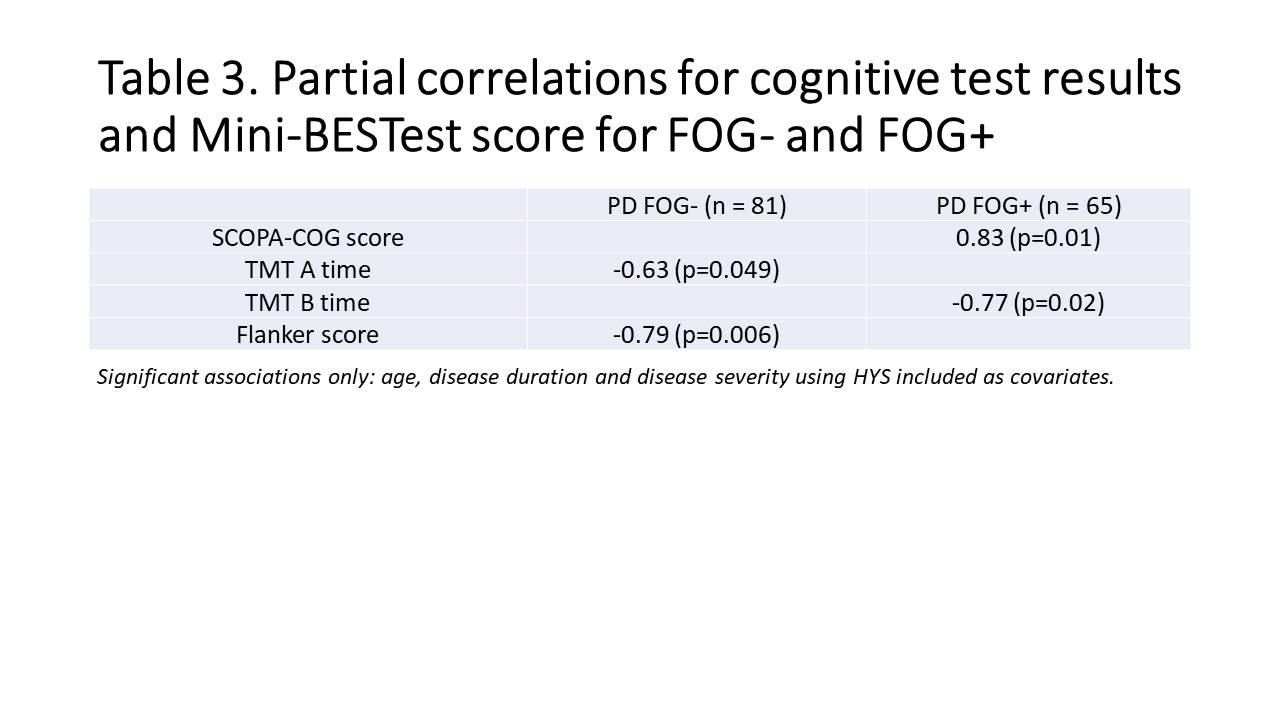Session Information
Date: Wednesday, September 25, 2019
Session Title: Cognition and Cognitive Disorders
Session Time: 1:15pm-2:45pm
Location: Agora 3 East, Level 3
Objective: To investigate whether balance function is associated with cognitive function in patients with idiopathic Parkinson’s disease (iPD) and to compare the association between freezers (FOG+) and non-freezers (FOG-)
Background: Balance deficit is a major problem in patients with iPD and deficits in balance are known to be associated with more impaired cognition. Therefore, it is important to investigate if there is an association with balance and cognitive function in subjects with iPD.
Method: We conducted an observational cross-sectional study. Participants included 146 subjects diagnosed with iPD and 78 healthy control subjects (HC). Subjects with iPD were classified as FOG+ or FOG-. Clinical information was obtained about disease duration, history of falls, Hoehn and Yahr scale (HYS), Unified Parkinson’s Disease Rating Scale (UPDRS), new freezing of gait scale, and Activities-specific Balance Confidence Scale. Balance function was assessed using mini Balance Evaluation Systems Test (Mini-BESTest). Cognitive function was evaluated using Montreal Cognitive Assessment (MoCA), SCales for Outcomes in PArkinson’s disease-COGnition (SCOPA-COG), and individual cognitive tests such as Trail Making Test (TMT), Stroop test, Go/No-Go test, Flankers test, Shifting test and Judgment of Line Orientation (JoLO). Partial correlations and multivariate linear regression analysis were used to determine independent associations for all subjects with iPD and for FOG+ and FOG-.
Results: Partial correlation analysis controlling for age, disease duration and disease severity using HYS showed lower SCOPA-COG score and longer TMT B time were significantly associated with lower Mini-BESTest score in FOG+ and longer TMT A time was significantly associated with lower Mini-BESTest score in FOG-. Multiple linear regression analysis showed that UPDRS III score, age, and TMT B time are significant factors contributing to balance function in subjects with iPD.
Conclusion: Cognitive function is significantly associated with balance function in subjects with iPD. TMT B time is a main factor contributing to Mini-BESTest score in subjects with iPD. The association between cognitive and balance function differs in FOG+ and FOG-.
To cite this abstract in AMA style:
SH. Jung, L. King, M. Mancini, P. Carlson-Kuhta, R. Morris, J. Nutt, F. Horak. The Association between Cognition and Balance in idiopathic Parkinson’s Disease [abstract]. Mov Disord. 2019; 34 (suppl 2). https://www.mdsabstracts.org/abstract/the-association-between-cognition-and-balance-in-idiopathic-parkinsons-disease/. Accessed April 20, 2025.« Back to 2019 International Congress
MDS Abstracts - https://www.mdsabstracts.org/abstract/the-association-between-cognition-and-balance-in-idiopathic-parkinsons-disease/



